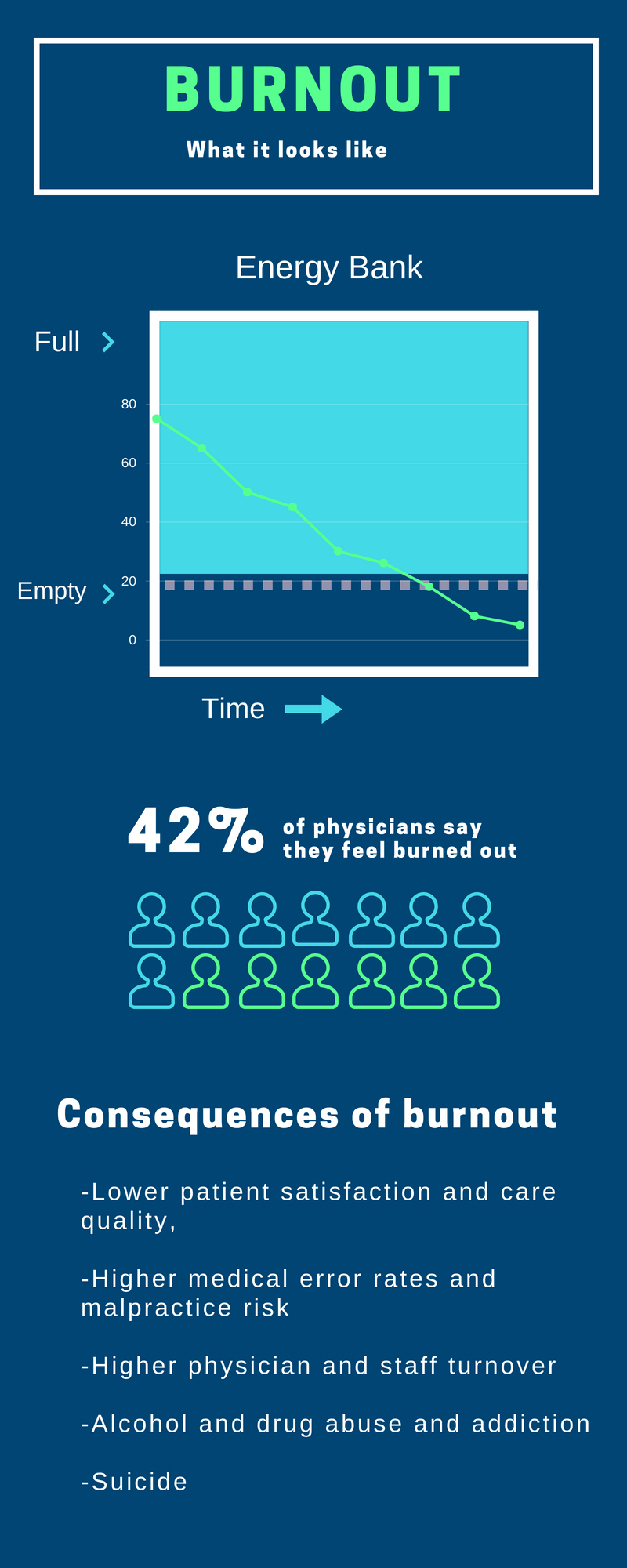Self Care for those in healthcare
Have you ever heard the saying you have to take care of yourself before you can care for others? This phrase rings true for everyone, maybe even more so for physicians and those in healthcare. The stress, pressure, and high exposure to trauma that physicians face can be taxing in a way that most people cannot understand. With the intense hours and long days, little time is left for physicians to process and deal with feelings, let alone to rest, relax, and spend time with loved ones. For doctors, stakes are high and there is little room for error. Physicians cannot afford the luxury of simply showing up to work and mindlessly cruising through the day. They need to be present, engaged, and tuned in. The suicide rate for physicians is higher than any other profession. Many who are struggling with mental health issues, which contribute to the high suicide rate, avoid getting help because of the fear of judgement and stigma. As said by Dr. Adam Hill, “Many physicians fear that showing vulnerability will lead to professional repercussions, judgment, or reduced opportunities. My experience has been that the benefits of living authentically far outweigh the risks.”

What is burnout?
The difference between stress and burnout, is that stress is something you can recover from shift to shift. Burnout, on the other hand, is a deeper and more ongoing issue, where you are not able to just recover between shifts.There are 3 key characteristics that define burnout: physical and emotional exhaustion, cynicism, and inefficacy. It is a continuance of emotional exhaustion that affects not only most aspects of one’s work, but also mental health and home life. The stress and burnout health care professionals experience can also lead to compassion fatigue and depersonalization. This means you become callous towards patients and can neglect to see their value as human beings.
How can you recognize when you are burning out?
When your energy accounts drop into negative balance, most physicians react by going into “survival mode” at work. You put your head down and try to grind through the work on autopilot, just trying to make it through the day. Being in this “survival mode” is a clear mark that you are well into burnout. At this point, it is important that you find ways to pull yourself out of this rut and to find things that bring you joy. Luckily, there are ways to care for yourself amidst a busy work schedule that can reduce the risk or burnout, or help you recover. While this list is not exhaustive, and burnout recovery is often a process, this list highlights some of the most important and doable strategies for self care.
Self care strategies:
- Surround yourself with people who know you, love you, and care about you. Create a network of people who can keep you accountable and check in on you.
- Keep your work-life balance in check: Your work shouldn’t be taking over every aspect of your life. There should be time for activities you enjoy and to spend time with family and friends.
- Seek additional help and training that allows you to better cope with the emotional nature of your work
- Work to improve communication and management skills
- Recognize when you need to take a step back, and do so
Self care serves as a way to minimize and manage burnout, compassion fatigue, and overall feelings of being overwhelmed and overworked. When a physician or healthcare professional cares for him or herself, it is not only beneficial to the individual, but to the workplace, and the patients. This is a reminder for all healthcare providers: take time for you. Yes, your patients need you, but they need the best version of you. That version requires upkeep, rest, and self care.
